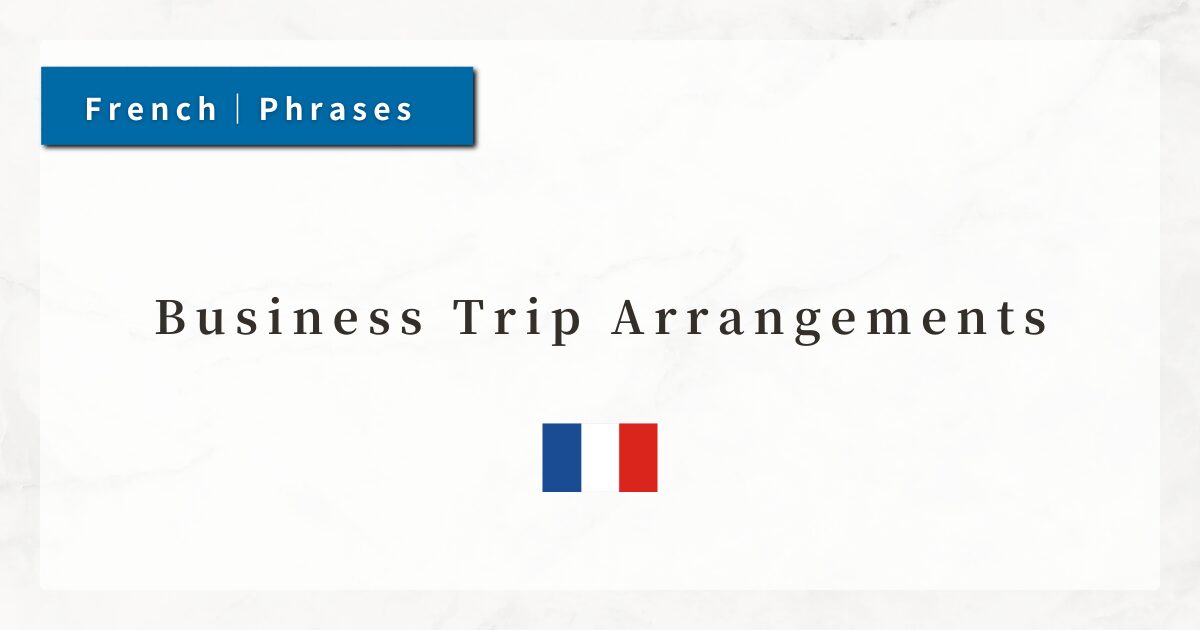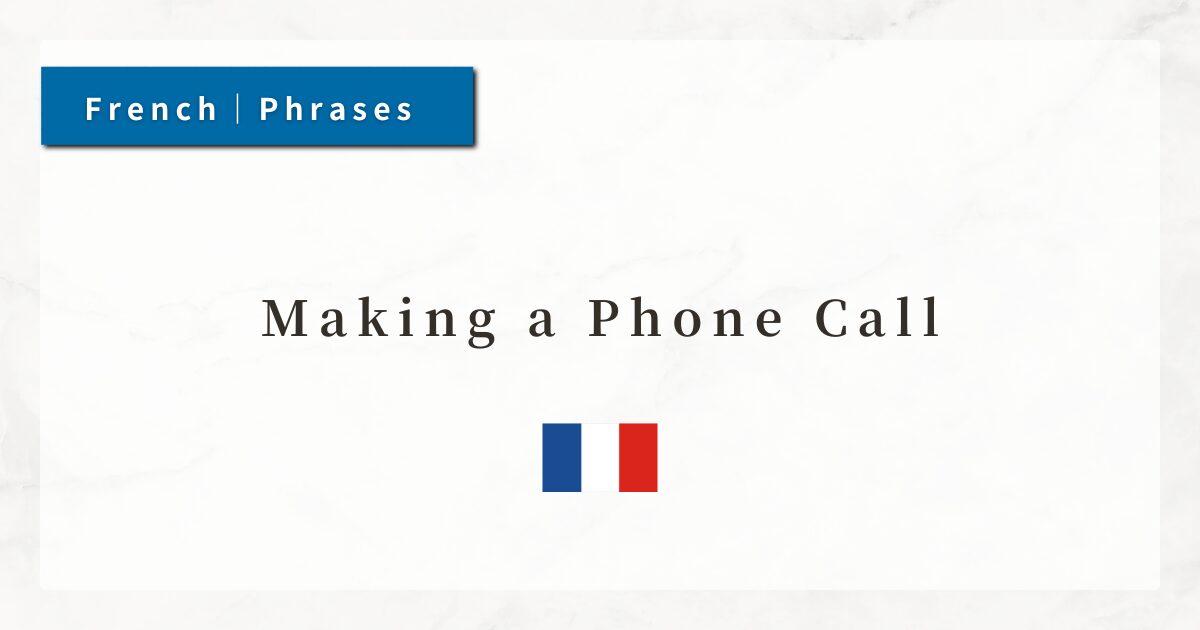#48 Business Trip Arrangements|French Phrases for Business Conversations

When traveling for work, you may need to handle hotel reservations and transportation arrangements in French.
By learning some basic expressions for requests and confirmations, you can prepare for your business trip smoothly and respond with confidence in professional situations.
In this lesson, I will introduce useful French phrases and grammar points for arranging a business trip.
Dialogue

Bonjour, je voudrais réserver une chambre pour deux nuits à Lyon.
(Hello, I would like to book a room for two nights in Lyon.)

Très bien. Pour quelles dates, s’il vous plaît ?
(Very well. For which dates, please?)

Du 10 au 12 mars. Est-ce qu’il y a une salle de réunion disponible ?
(From March 10th to 12th. Is there a meeting room available?)

Oui, nous avons une salle pour vingt personnes. Voulez-vous que je la réserve ?
(Yes, we have a room for twenty people. Would you like me to reserve it for you?)

Oui, merci beaucoup. Et pouvez-vous aussi organiser un transfert depuis la gare ?
(Yes, thank you very much. And could you also arrange a transfer from the station?)

Bien sûr, nous allons organiser le transfert pour vous.
(Of course, we will arrange the transfer for you.)
1. Expressions for “to book / to reserve”
The verb réserver is frequently used in business contexts to mean “to reserve” or “to book.” It applies to hotels, meeting rooms, restaurants, or transportation.
- Je voudrais réserver une chambre.
(I would like to reserve a room.) - Je voudrais réserver un billet de train.
(I would like to book a train ticket.)
Here, “Je voudrais …” literally means “I would like …,” and is a polite way to make requests.
In business contexts, “Je voudrais …” is more appropriate than “Je veux …” (I want …), which sounds too direct.
2. Expressing Dates
To indicate a period such as “from … to …,” French uses the structure “du … au ….”
- Du 10 au 12 mars.
(From March 10th to 12th.)
Here, du is the contraction of “de + le” (from), and au is the contraction of “à + le” (to/until).
Dates in French are expressed as “number + month name,” e.g., le 5 avril (April 5).
3. Asking About Facilities or Equipment
To ask whether something is available, use “Est-ce qu’il y a …?”
- Est-ce qu’il y a une salle de réunion disponible ?
(Is there a meeting room available?) - Est-ce qu’il y a un projecteur ?
(Is there a projector?)
The structure “il y a …” means “there is/are.” The adjective disponible means “available,” and is very common in reservations and business situations.
4. Requesting Additional Arrangements
To request additional services such as transfers or taxis, use ”Pouvez-vous … ?”
- Pouvez-vous organiser un transfert depuis la gare ?
(Could you arrange a transfer from the station?) - Pouvez-vous organiser un taxi demain matin ?
(Could you arrange a taxi for tomorrow morning?)
“Pouvez-vous … ?” means “Could you … ?” and is a polite form. Adding “s’il vous plaît” makes it even more formal.
The verb “organiser” means “to arrange / to organize,” and is often used in the context of business trip logistics.
Summary
- réserver
→ “to book / reserve.” Commonly used for hotels, meeting rooms, and transportation. - Je voudrais …
→ Polite request, “I would like to …” (softer than Je veux …). - du … au …
→ ”from … to …” for dates. - Est-ce qu’il y a … ?
→ “Is there … ?” Useful for checking facilities or equipment. - disponible
→ “available.” Handy adjective for business contexts. - Pouvez-vous organiser … ?
→ “Could you arrange … ?” for requesting additional arrangements.




